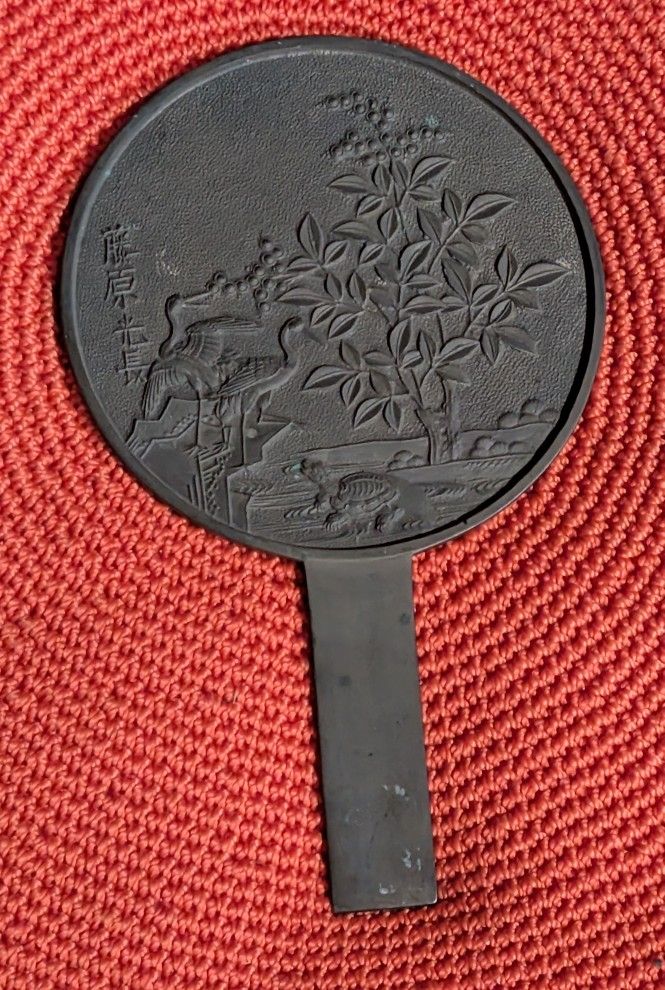Take action
$90
Vintage Japanese Bronze Hand Mirror (Kagami) – Edo to Early Meiji Period | Signed 藤原光長 (Fujiwara Mitsunaga)
Posted 19 days ago in Peoria, AZ
Listed in categories:
Sold by
Get a second opinion
Chat securely on the app

Additional images
Description
A rare and beautifully preserved Japanese bronze hand mirror, or kagami, dating from the late Edo period (1603–1868) to the early Meiji period (1868–1912). This exquisite piece exemplifies the refined metalworking traditions of Japan, blending functional design with spiritual symbolism and cultural elegance. 藤原光長 (Fujiwara Mitsunaga) The mirror bears the inscription 藤原光長, a name associated with a distinguished lineage of mirror makers active from the 17th to 19th centuries. This name, passed down between generations, functioned almost as a hallmark—signifying high-quality craftsmanship and mastery in bronze work. Mirrors signed by Mitsunaga are highly collectible and prized for their artistry and historical significance. Solid bronze or copper Finish: Originally polished with a nickel-gilded reflective surface (now oxidized with age) Condition: Natural oxidation on the mirror face; the relief on the reverse remains crisp and detailed, showcasing excellent period craftsmanship. The reverse side features a refined low-relief design of traditional Japanese symbols: Crane (Tsuru): Emblem of longevity and fidelity; believed to live 1,000 years Turtle (Minogame): Symbol of endurance and prosperity; mythologically lives 10,000 years, often depicted with seaweed trailing from its shell Pine Tree: Represents resilience, longevity, and fortitude in Japanese art and poetry These motifs were not merely decorative—they carried auspicious meanings and were commonly featured on items exchanged as wedding gifts or ceremonial heirlooms. Kagami mirrors like this were luxury items, owned by nobles, samurai families, and geishas, and were often used in rituals or as tokens of status and refinement. During the Meiji period, as Japan modernized, such mirrors became symbols of cultural preservation and artisanal pride, reflecting the nation’s rich heritage in metalwork and design. This mirror is more than a decorative piece—it is a testament to Japan’s Edo-Meiji artistry, imbued with symbolic depth and signed by a historically significant artisan. A valuable acquisition for collectors of Japanese antiques, bronze ware, or spiritual objects.
Details
Condition
Used (normal wear)
Type
Mirror
Item location map
Map is approximate to keep seller’s location private.
Related searches
- Antique dresser
- Antique furniture
- Antique desk
- Antique table
- Antique mirror
- Antique clocks
- Antique chairs
- Antique cabinets
- Antique bottles
- Antique armoire
- Antique lamps
- Antique dolls
- Antique china
- Antique glass
- Vintage lamp
- Vintage pyrex
- Candelabra